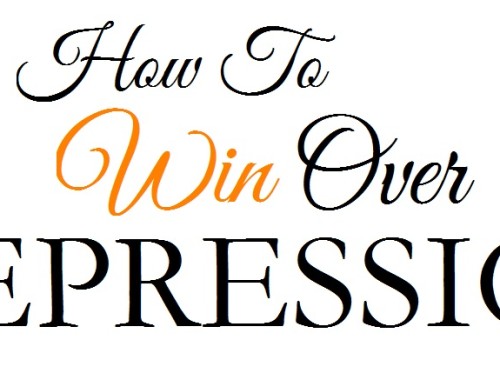serious trigger warning for verbal abuse, psychological abuse, emotional manipulation, sexual assault, rape, and rape apologia.
I’d never seen so many fireflies in one place before. It was early summer in Virginia, and I was sitting, sheltered under a gazebo, watching golden lights flicker on the undisturbed, clear surface of a pond. It was one of those perfect summer evenings, when the gentle breeze feels good brushing against your bare arms, and the air feels close and warm, like a light blanket fluttering around you. It was one of those moments when silence felt comfortable, when words hung motionless in the air.
The words I’d just spoken seemed to surround me, hanging like broken ornaments from silent strings.
He raped me.
It was the first time I’d ever said the words out loud, to anyone. Ever.
I’d known it was the truth for a few months now. The words had been rattling around inside of me, glass shards I shied away from touching, from letting come up my throat and exist outside of me. But, I’d said them, and the trueness finally settled inside of me, and it was like I hadn’t really understood them before I’d said them, out loud, in a place where someone was listening.
It didn’t take very long for that to shatter.
You’re lying. Insidious, and the accusation felt more real to me than the fragility of my words.
~~~~~~~~~~~~~~~~~~~~
A while ago I wrote a post about consent, and what it has come to mean to me. It’s the most healing word I own, because it tells me that what happened to me wasn’t my fault, that it happened to me, that it was not what I justly deserved. I had never given him my consent, but that didn’t matter when I was on my back on the blue shag carpet, and I said the words please, please, stop, I don’t want to do this and he used his watch to cut my knee open and then called me a goddamn fucking bitch.
And, on that post, just like every post I’ve ever seen when a woman dares to talk about rape and consent, a man who had never commented on my blog before, who had never liked a post before, who I’d never heard of before, anywhere, and who has never commented since, deigned to comment to tell me about false allegations and how horrible, how awful, how destructive they are.
I did my best to be civil. But, by my last comment, you can tell that I was angry.
Let me be absolutely clear: false accusations are horrific. I would never deny that, would never try to argue that they aren’t.
However, there is a reason why I, personally, react to them consistently being introduced into conversations on rape and consent on a visceral, whole-body level. Hearing about them makes me physically ill– to the point where I have actually vomited because of discussions concerning them. Any time I try to talk about it with Handsome, I end up shaking and weeping, fighting off a panic attack.
A few days ago, I realized why.
I was engaged to my rapist– had been engaged to him for almost a year by the time he raped me. He sexually assaulted me… I honestly don’t know. The number of times is probably in the hundreds. Looking back over our relationship, he had been grooming me for that moment for literally years. It had started small– minor things I could brush off as cute, as innocent, as harmless, but things still done to me without my consent. Slowly, so slowly I couldn’t tell what was happening, everything intensified. And, through it all, he made absolutely certain that I knew beyond all doubt that there was no such thing as no. If I said no to anything— if I didn’t instantly answer when he called, if I didn’t immediately change my clothes when he told me to, if I didn’t comply with every request the second he made it, I was punished.
He also made it brutally, horribly clear that he was not interested in only demanding and taking– if I was not at least a semi-active participant in my own assault, he would punish me for that, too.
That part of my story is usually the one I can never talk about. I’m shaking, right now, as I write these words. Today, I can say the words “I was raped” and talk about my experience with some measure of calm, almost detachment. But this? How I engaged in my own assaults? How I deliberately ignored my feelings of revulsion, of disgust, the intense nausea? How I initiated sexual encounters with him, even though I didn’t want to? How I did my best to be sexy for him? How I did it all knowing if I didn’t, that he would punish me, or even worse. leave me?
This has left me with deep psychological scars that appear in my life as neuroses. Some of the most humiliating experiences of our entire relationship occurred in bathrooms, and, because of that, I cannot, cannot, take a shower in a strange place without struggling with flashbacks and panic, and I can barely get in and out of my own shower without spraying it down with Lysol before and after, although I am slowly getting better.
I say all of that to say this: if I had known that what had happened to me was rape, if I’d had any understanding of what consent was, if I’d known sex you don’t want to have is rape, maybe I could have done something. I could have gone to the police, filed a report. I could have gone to my college’s student affairs office and asked for help.
But, I know what would have happened.
Anyone involved would have gone to John*. And he would tell them that I was lying, that I was his fiancé. He would have directed me to his parents– because he had made sure they witnessed me “initiating” physical things, like cuddling and touching and kissing. He had the entire campus on his side– he leveraged his popularity and his fame against me, deliberately doing everything within his power to discredit me as that “crazy bitch.” Years after I’d graduated, students still knew who I was, and what I’d “done to him.” And the police would have marked my report a false allegation, and I would have been dismissed as a liar.
The student affairs at my college would have expelled me for sexual misconduct, and almost four years of college would have disappeared, with unaccredited, nontransferable credits.
I know this because it happens every. single. damn. day.
I know this, because I took one of my friends to the hospital to get a rape kit, and they took pictures, and the police interviewed her. But then her case was dismissed, and when she asked them why, they told her they had talked to her ex-boyfriend, who told them she was lying, that it was consensual, and he had witnesses of her kissing him, and, then the officer started yelling at her for treating the police like her own personal puppets and they have “better things to do then waste time on attention whores.”
I know this because another one of my friends went to our college administration to ask for their help, and told them what her boyfriend was doing to her, and they expelled her for “sexual misconduct,” and her family kicked her out of their home.
I know this because another woman on my campus was being sex trafficked, and when our college found out about it, they expelled her, and not only did they expel her, they splashed her story around the entire campus and every single last woman on campus was explicitly told that if we are sex trafficked it is our own fault.
I know this, because when a woman says I was raped the very first thing that the entire world starts screaming at her is you’re a liar.
~~~~~~~~~~~~~~~~~~~~
This is why bringing false allegations into conversations about rape and consent is so damaging. We aren’t reacting negatively because we don’t think that false allegations are horrible, or that false allegations are insignificant and easily dismissed, because they aren’t. We are reacting this way because we live in a world where false allegations are the dominant narrative. Because false allegations are a nearly-universal part of any conversation about rape, when a woman says that she is a rape survivor, one of the first things that becomes a part of that conversation is suspicion, cynicism, and dismissal.
We are told that if we didn’t handle the situation exactly the way some person on the internet thinks it should be handled, then our credibility is questioned. If we answer the invasive, boundary-violating inquiry “did you report it?” with “no,” then everything about our story is frequently dismissed. Because reporting a rape, to these people, is just as simple as reporting any other kind of crime, and why wouldn’t you? The only reason why you didn’t report your rape is, secretly, you know you wanted it. People who are true rape victims would have no problem with reporting it. And if you were really raped, you don’t have to worry about being dismissed. Any woman who’s worried about being called is a liar is only worried because she actually is one.
I understand why men are so afraid of false allegations. I get that, I really, really do.
But we desperately need an alternative. Right now, the conversation is completely polarized, and the story of the woman who “cries rape” is winning. Because rape victim and liar are so close together, so rhetorically linked, we live in a world where reporting your rape can be one of the most violating, horrible experiences of your life. Where up to 95% of all rapes go unreported because of what happens to women who come forward.
That is a world we need to change.




